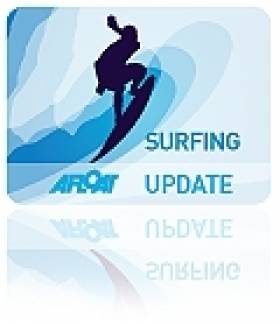Displaying items by tag: IrishAmerican
Irish-American Surfs 'World's Biggest Wave'
#SURFING - An Irish-American has ridden what's being called the biggest wave ever surfed in the world.
Garrett McNamara from Hawaii caught the 90-foot monster wave off the coast of Nazaré in Portugal earlier this month, The Irish Times reports.
"Everything was perfect, the weather, the waves," said Northern Irish surfer Al Mennie, who was tow-in surfing with McNamara and English rider Andrew Cotton when the giant swell arose at Praia do Norte.
The offshore area is noted for its deepwater canyon that channels massive swells from the Atlantic.
“As I rode this wave, it seemed pretty massive, but I couldn’t tell quite how big it was,” McNamara told surf forecast site Surfline.
“When I got to the bottom and turned and got around the wave and went to kick out, it landed on me and it felt like a ton of bricks.
"Probably one of the most powerful waves ever to land on me at the shoulder," he added. "It was pretty amazing.”
McNamara - whose family has Irish roots, according to Irish Central - is working with the Portuguese Hydrographic Institute as part of the ZON North Canyon Project, which aims to learn how waves reach such significant heights at Praia do Norte.
See video of the record-shattering wave ride below:






























































